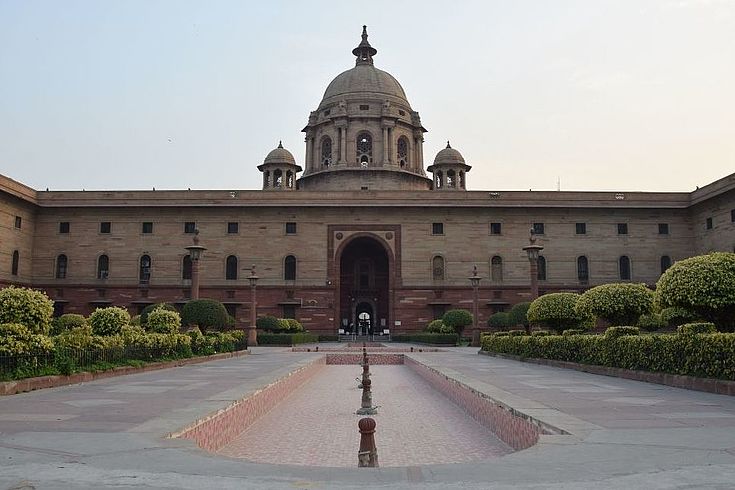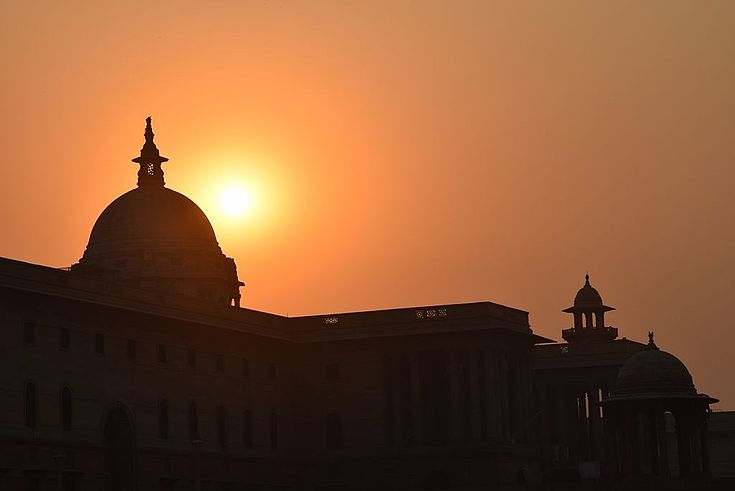India's New President

The choice of Kovind, a Dalit, was largely depicted as a sensation. In person of Meira Kumar the National Congress likewise fielded a Dalit candidate. However, by then several oppositional parties had already expressed their support for Ram Nath Kovind.
Modi’s decision to pick a relatively unknown candidate with deprived backgrounds was carefully considered. The preceding president, Pranab Mukherjee, is a Brahmin from an influential political family and previously held several government offices for the Congress. By contrast, the ruling party BJP in many years now greatly counts on candidates with an unpretentious, spiritual charisma and primarily of ordinary descent. With this personnel policy the BJP continues to go from success to success in the elections at the federal state level, too.
Presidential powers
Even though the President of India – similar to the German “Bundespräsident” – generally fulfils a representative function, the constitution allows him substantial powers of intervention. For instance, he has the authority to convoke Parliament, reject bills and to dismiss a Prime Minister who has lost the support of the parliament. The President is considered as a watchman of the Indian constitution and a safeguard against the abuse of power by other bodies. Although these significant powers rarely have been used in practice, the President is in a position to make the Prime Minister’s job more challenging The BJP experienced that between 2002 and 2004, when the charismatic President A.P.J. Abdul Kalam actively got involved in government politics and as so-called “People’s President” in some respect outshined BJP Prime Minister Atal Bihari Vajpayee.
In marked contrast, Kovind is regarded as having a modest personality, his political style is rather unobtrusive. In the 1980s, he worked as an advocate at several higher courts in India, and, as a former member of the Raj Sabha and Governor of Bihar, he has experience in federal and state politics. But there are other reasons that speak in favour of Kovind.

Background of Kovind’s nomination
Political observers expect the new President to only very little intervene in daily government politics. This might be favourable for Prime Minister Modi and his programme of national and economic reformation. Moreover, Kovind is a Dalit, a member of the castegroup that for a long time was regarded as “untouchable” and that even today – despite formal equality – in many areas faces discrimination, exploitation and poverty.
By nominating Kovind, the BJP is expecting to gain access to the vast voting block of approximately 160 Million Dalits in the whole country. This will be of special concern win view of the national elections in 2019. Modi’s critics suspect the nomination of Kovind to be only symbol politics. Although not having be a member himself, Kovind is closely connected to the radical Hindu nationalist organisation RSS (Rashtriya Swayamsevak Sangh). Prime Minister himself is a member of this “National Volunteer Organisation“ and has been actively engaged for its purposes throughout his life. In the discourse about the granting of special minority rights for converted Dalits, Kovind strongly opposed the plan as not being constitutional, because “Islam and Christianity are alien to the nation”. It is therefore scarcely to be expected that Kovind will take a stand against the growing inter-religious tensions in the country.
But there is still reason to hope for the depressed opposition around the Congress: As a candidate for the office of the Vice-President they nominated Gopalkrishna Gandhi. At a joint event organized by Hanns Seidel Foundation and Federation of Indo-German Societies in India , the former ambassador and grandson of Mahatma Gandhi was invited to give a lecture in New Delhi this year. His nomination was announced swiftly and without major dissent, numerous opposition parties immediately expressed their support. The nomination of the NDA’s candidate Venkaiah Naidu (by then Minister of Urban Development, Housing and Urban Poverty Alleviation) in contrast happened only on 18th July and appeared to be over-hasty. The election of Gandhi as Vice-President on 5th August would mean at least a little symbolic triumph for crisis-torn Congress.
Kovind’s election to president of India is another success for the NDA. His personal profile enabled his election, his ideologic closeness to RSS and BJP ensures smooth governing for Narendra Modi. In his first weeks of office, Kovind now has the opportunity to show that he is able to respond to the trend of growing cleavages in the Indian society.
